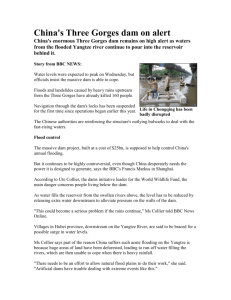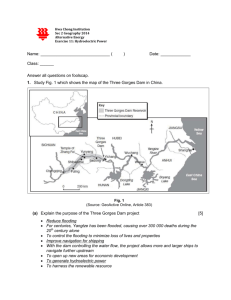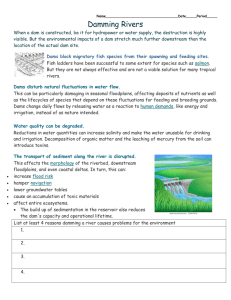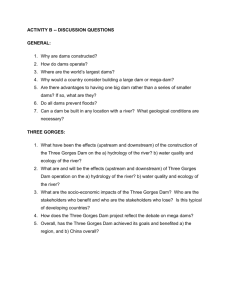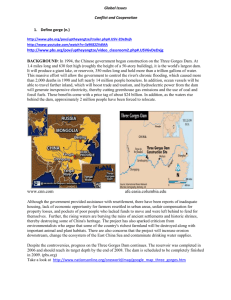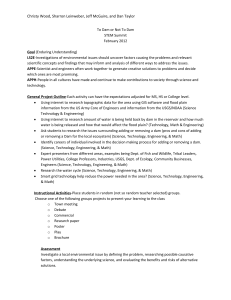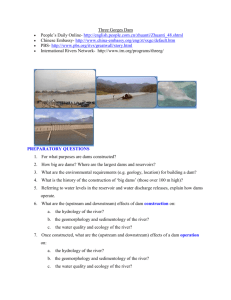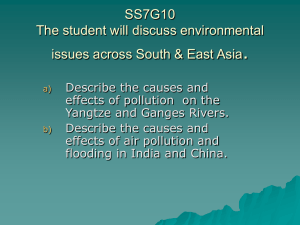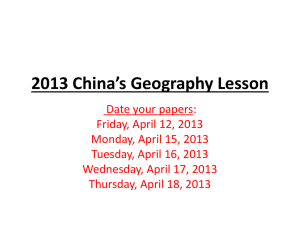3 Gorges Dam mystery
advertisement
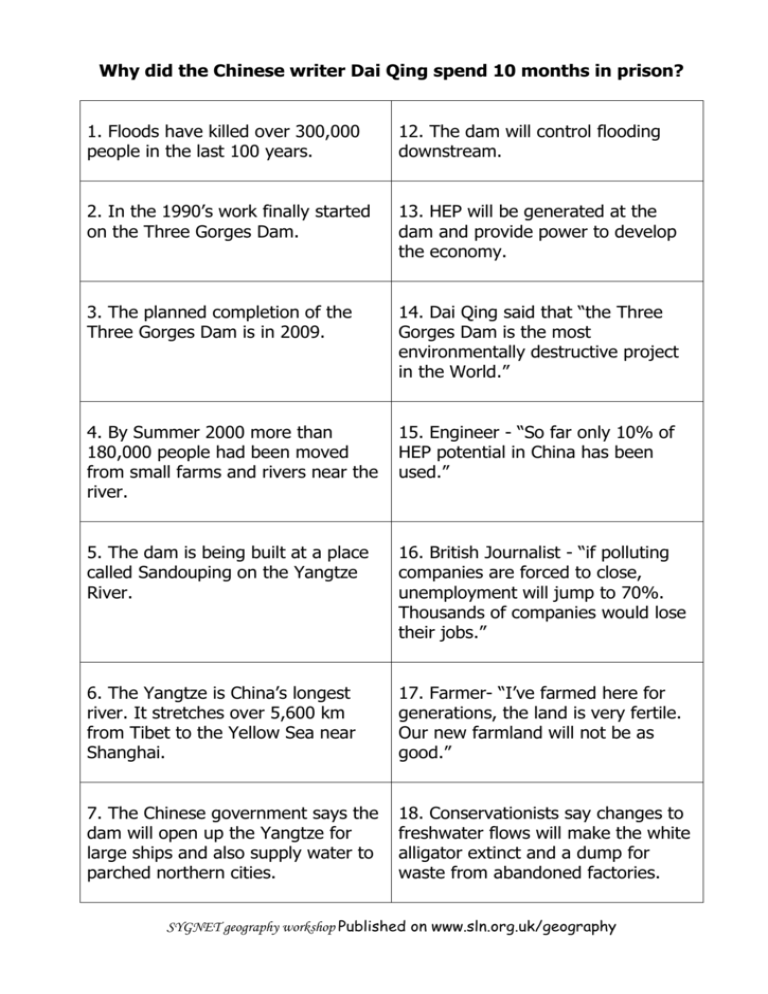
Why did the Chinese writer Dai Qing spend 10 months in prison? 1. Floods have killed over 300,000 people in the last 100 years. 12. The dam will control flooding downstream. 2. In the 1990’s work finally started on the Three Gorges Dam. 13. HEP will be generated at the dam and provide power to develop the economy. 3. The planned completion of the Three Gorges Dam is in 2009. 14. Dai Qing said that “the Three Gorges Dam is the most environmentally destructive project in the World.” 4. By Summer 2000 more than 180,000 people had been moved from small farms and rivers near the river. 15. Engineer - “So far only 10% of HEP potential in China has been used.” 5. The dam is being built at a place called Sandouping on the Yangtze River. 16. British Journalist - “if polluting companies are forced to close, unemployment will jump to 70%. Thousands of companies would lose their jobs.” 6. The Yangtze is China’s longest river. It stretches over 5,600 km from Tibet to the Yellow Sea near Shanghai. 17. Farmer- “I’ve farmed here for generations, the land is very fertile. Our new farmland will not be as good.” 7. The Chinese government says the dam will open up the Yangtze for large ships and also supply water to parched northern cities. 18. Conservationists say changes to freshwater flows will make the white alligator extinct and a dump for waste from abandoned factories. SYGNET geography workshop Published on www.sln.org.uk/geography 8. The dam will cause the flooding of: 137 cities and towns, 4 000 hospitals, 1 100 villages. 19. Conservationists say that the accumulation of silt will cripple the reservoir and that all the areas dependant on it are in danger of pollution. 9. The scheme will protect 10 million people downstream from flooding. 20. China’s leaders see the Three Gorges Dam as a symbol of the importance of China. 10. 400 million people live in the Yangtze drainage basin. 21. China is a one party communist state. 11. 85% of Yangtze basin’s original forest cover has been removed. 22. Those most in favour of the dam live downstream. SYGNET geography workshop Published on www.sln.org.uk/geography

